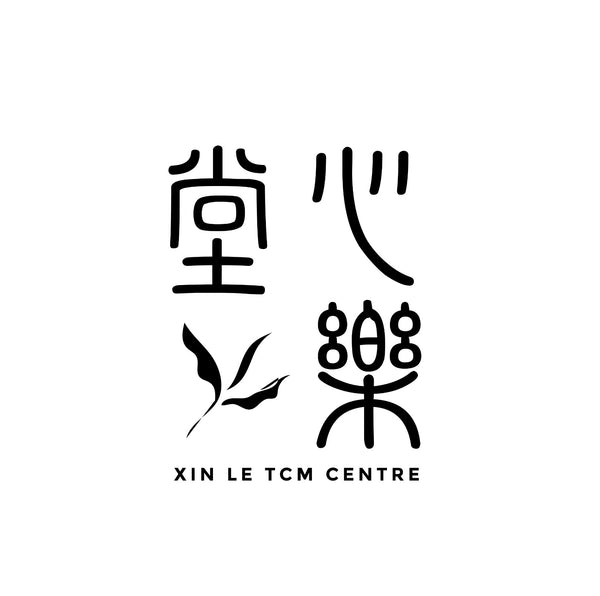What is Qi Stagnation?
In Traditional Chinese Medicine (TCM), Qi (energy) is the vital life force that flows through the body, supporting circulation, organ function, and overall well-being. When this flow becomes blocked or sluggish, it leads to Qi stagnation, causing discomfort and imbalance.
Common Symptoms of Qi Stagnation Body Constitution
People with Qi stagnation often experience:
✔️ Frequent sighing or feeling like there’s a lump in the throat
✔️ Chest tightness or a feeling of heaviness

✔️ Mood swings, irritability, or feeling easily frustrated
✔️ Fatigue and spontaneous sweating
✔️ Digestive discomfort such as bloating or irregular bowel movements
✔️ Tension in the neck and shoulders
✔️ Irregular periods or PMS in women
✔️ Poor sleep quality
Causes of Qi Stagnation Body Constitution
-
Emotional Stress
Suppressed emotions, overthinking, or frustration weaken the smooth flow of Qi in the body. -
Lack of Exercise or Movement
A sedentary lifestyle slows down circulation, leading to Qi stagnation. -
Unhealthy Diet
Consuming excessive cold, greasy, or processed foods weakens digestion and disrupts Qi flow. -
Lack of Proper Breathing
Shallow breathing affects lung function and Qi circulation, making the body feel sluggish and tense.
Liver and Qi Stagnation
In TCM, the Liver plays a key role in Qi circulation. It is responsible for maintaining the smooth flow of Qi, regulating emotions, and balancing hormones. Stress, poor diet, and an irregular lifestyle can cause Liver Qi to stagnate, leading to emotional imbalances, digestive issues, and menstrual irregularities.
Liver Qi stagnation is one of the most common body imbalances, especially in women.
Qi Stagnation and Body Illness
If Qi stagnation is left unbalanced, it can lead to:
❌ Digestive disorders (bloating, acid reflux, constipation)

❌ Anxiety, irritability, and depressive moods
❌ Chronic fatigue and muscle tension
❌ Menstrual irregularities, PMS, and reproductive issues

In TCM, the uterus is closely related to the Liver and Kidneys. When Qi stagnation disrupts the flow of energy in these organs, it can interfere with ovulation, blood circulation, and embryo implantation—potentially impacting fertility.
Treatment for Qi Stagnation Body Constitution
1. Acupuncture
Acupuncture helps release tension, improve circulation, and restore balance in the body.
Common acupoints used to relieve Qi stagnation:
-
He Gu – Relieves stress, headaches, and tension
-
Qi Hai – Strengthens digestion and improves energy
-
Zu San Li – Boosts circulation and overall vitality
- Tan Zhong – Regulates emotions, and relieves tightness
2. Chinese Herbal Medicine
TCM practitioners prescribe herbal formulas based on individual body conditions. Herbs that help move Qi include:
-
Chai Hu (Bupleurum) – Regulates Liver Qi and eases stress
-
Tangerine Peel – Supports digestion and reduces bloating
-
Peony Root (Bai Shao) – Soothes PMS and menstrual cramps
-
Mu Xiang – Relieves abdominal discomfort and improves gut function
3. Mind-Body Practices
Tai Chi, Qi Gong, and deep breathing exercises help regulate Qi flow, reduce stress, and improve emotional well-being.
4. Cupping & Gua Sha
These techniques help relax muscles, improve blood flow, and promote Qi circulation, relieving tension and stress-related stagnation.
5. Tea and Food Therapy
Certain foods and herbs can help move stagnant Qi and restore balance:
-
Sour foods – Vinegar, hawthorn, citrus fruits
-
Aromatic herbs – Chamomile, cinnamon, rose
-
Leafy greens – Celery, radish, kelp
If you often feel stuck, tense, or emotionally overwhelmed, it could be a sign that your Qi is not flowing properly. Simple lifestyle adjustments, acupuncture, herbal remedies, and mindful movement can help restore balance and improve overall well-being.
Feeling stagnant? Let’s help you get your Qi moving again! Book a consultation today.

